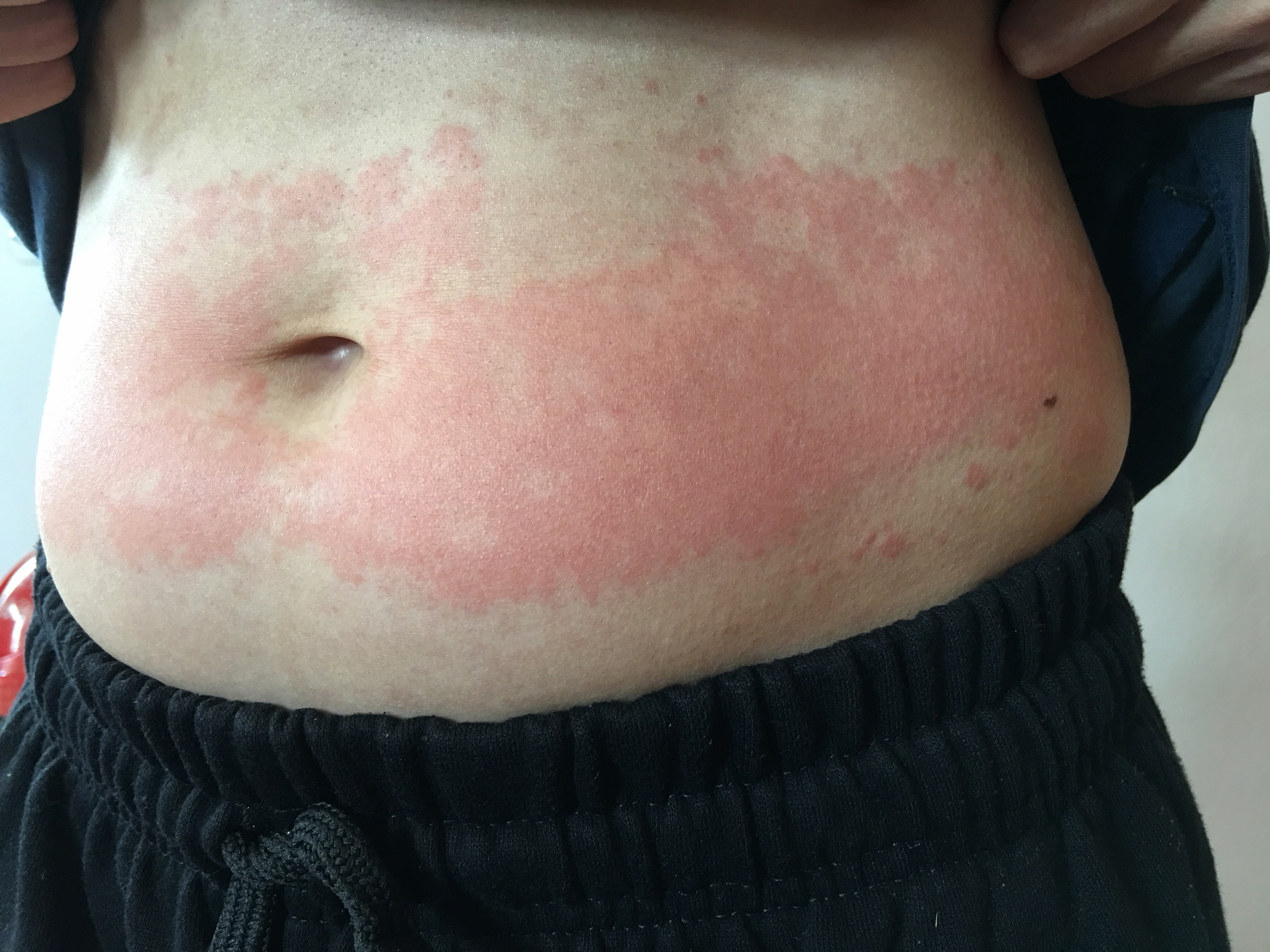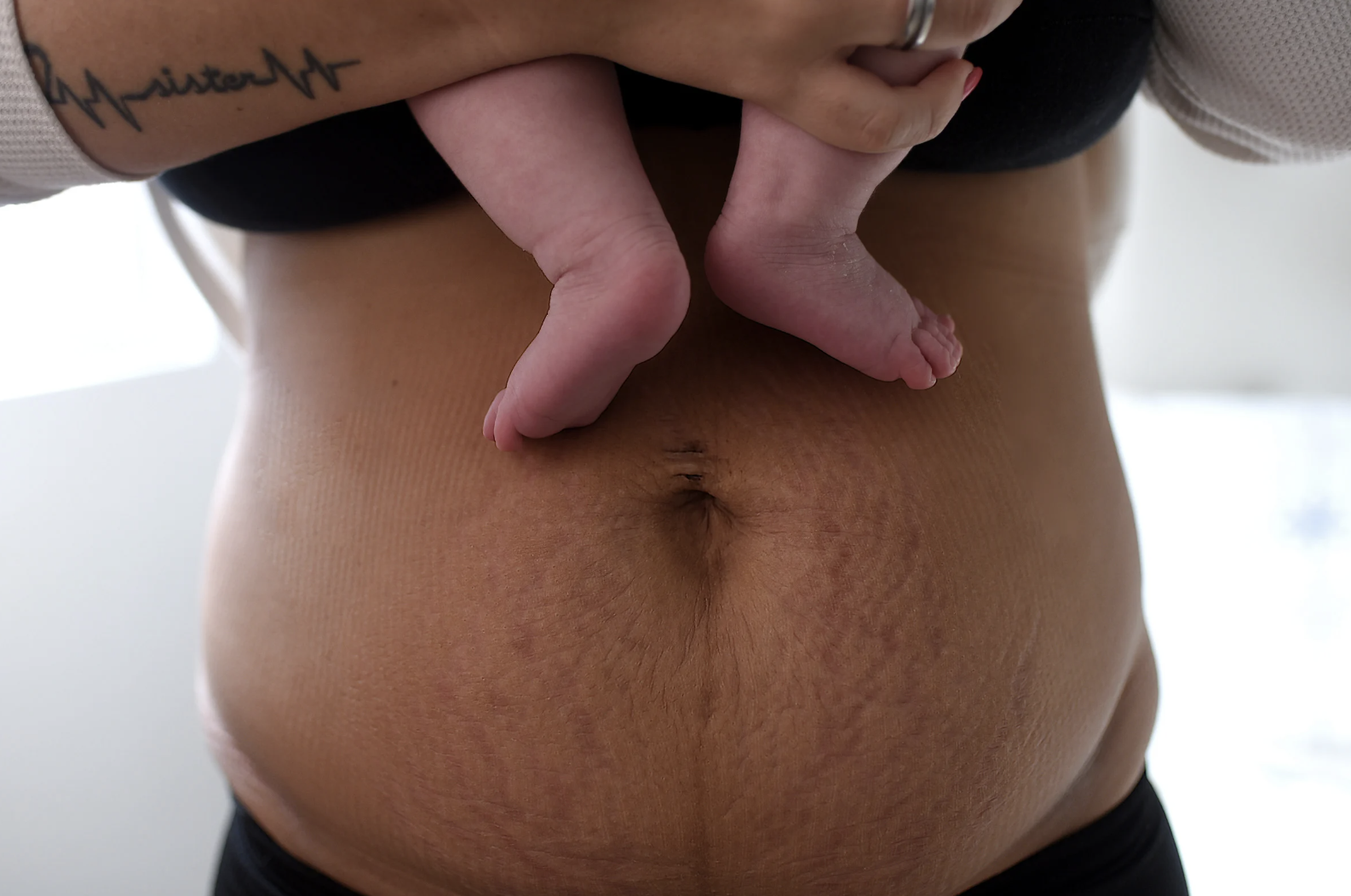Kirsten Fisch, MSN, RNC-MNN, IBCLC, LCCE Kirsten is a women's health nurse who specializes in high-risk pregnancy and postpartum care. She is certified in Maternal Newborn Nursing, a board-certified lactation consultant (IBCLC), and a Lamaze Certified Childbirth Educator. She works with women from conception through the postpartum period. Passionate about empowering women throughout their reproductive journeys, Kirsten combines evidence-based care with compassionate support to promote the health and well-being of mothers and babies.
“I’ve got this weird, itchy rash spreading across my belly. I don’t know what it is or if I should be worried.”
A patient shared this with me recently while visiting her newborn in the NICU. She lifted her shirt slightly to reveal red, raised patches along her lower abdomen. It wasn’t painful, but it was spreading—and understandably, she was concerned.
As a perinatal nurse and lactation consultant, I hear this more often than you might think. Postpartum skin rashes are common, uncomfortable, and often unexpected—but the good news is that most are harmless and treatable.
Why Do Postpartum Rashes Happen?
Your body goes through major hormonal and immune shifts after birth. These changes, combined with stretched, sensitive skin, can trigger several types of rashes. Common causes include:
- PUPPP (Pruritic Urticarial Papules and Plaques of Pregnancy): Often starts in late pregnancy but can appear or linger postpartum, usually around stretch marks.
- Hormonal Fluctuations: Sudden drops in estrogen and progesterone can affect your skin’s moisture and sensitivity.
- Contact Dermatitis: Irritation from new products like hospital soaps, hand sanitizers, or laundry detergent.
- Heat Rash: Caused by sweating and friction, especially around belly folds or under clothing.
- Infections: Fungal or bacterial rashes can develop if moisture and irritation go unchecked.
How to Treat It
For most mild rashes, simple home care can provide relief:
- Apply cool compresses
- Take oatmeal baths
- Use 1% hydrocortisone cream (check with your provider if breastfeeding)
- Stick to fragrance-free lotions and detergents
- Wear loose, breathable clothing
When to Call Your Provider
Reach out to your doctor if:
- The rash is spreading quickly or becoming painful
- You have a fever or signs of infection (pus, warmth, oozing)
- It doesn’t improve after a few days
- You have a history of chronic skin conditions like eczema or psoriasis
You’re Not Alone
Skin changes are just one more way your body is adjusting postpartum. If something feels off, say something—like this patient did. You deserve care and answers, too.

Kirsten Fisch, MSN, RNC-MNN, IBCLC, LCCE Kirsten is a women's health nurse who specializes in high-risk pregnancy and postpartum care. She is certified in Maternal Newborn Nursing, a board-certified lactation consultant (IBCLC), and a Lamaze Certified Childbirth Educator. She works with women from conception through the postpartum period. Passionate about empowering women throughout their reproductive journeys, Kirsten combines evidence-based care with compassionate support to promote the health and well-being of mothers and babies.




